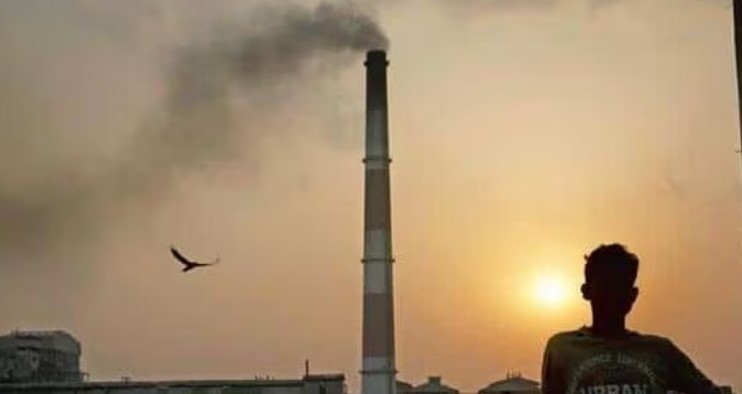REC to Fund ₹1.75 Trillion for India’s Thermal Power Expansion by 2032
REC Ltd may disburse loans up to ₹1.75 trillion for coal-fired power projects by 2032, targeting 25 GW of the planned 80 GW thermal capacity addition. India’s current coal-fired power capacity is 210 GW, with overall thermal capacity at 243 GW. Despite India’s net-zero emissions target by 2070, thermal power remains crucial for economic growth, addressing immediate power demands amid ongoing renewable energy expansion. REC also funds renewable energy projects, aiming for 30% of its loan book by 2030.
Source: Mint
India Negotiates $3.9 Billion Deal for 31 US MQ-9B Drones
India is in talks with the US to acquire 31 MQ-9B drones for $3.9 billion. Discussions, including technology sharing and local manufacturing, are ongoing. Fifteen of these drones will have maritime roles. The deal’s value increased from $3 billion to $3.99 billion. General Atomics is negotiating to manufacture 8-9% of drone components in India, aiming to increase this to 15-20%. The drones will operate from three hubs across India.
Source: Economic Times
NHAI Hikes Toll Rates by 5% Amid Rising Inflation
Starting today, motorists will pay 5% more to use expressways as the National Highways Authority of India (NHAI) revises toll rates, an annual adjustment linked to CPI-based inflation. This hike, deferred from April due to elections, affects 855 toll plazas nationwide. Toll collections have surged, crossing ₹50,000 crore in FY 2023-24, fueled by expanded tolled road lengths and increased FASTag adoption, which now covers over 7.98 crore users.
Source: Business Today
FPIs May Reduce Bearish Bets, Boosting Indian Stock Market
Foreign portfolio investors (FPIs) hold record bearish positions in Nifty index futures worth $2.8 billion. Analysts predict a strong BJP performance in exit polls could trigger FPIs to cover these bets, potentially pushing Sensex up by 2,600 points and Nifty above 23,300. Market volatility has surged, but bullish single stock futures positions by FPIs and heavy investments by domestic investors hint at a positive outlook.
Source: Economic Times
Data Protection and AI Regulation Top Priorities for India’s Next Government
Tech policy experts urge the new Indian government to prioritize the Digital Personal Data Protection (DPDP) Rules and the Digital India Bill (DIB) after the general elections. The DPDP Rules are essential to enforce the DPDP Act passed in August 2023. Additionally, regulating AI and updating the IT Act of 2000 with the DIB are critical to address intermediary liability, fake news, and deep fake content.
Source: Economic Times
Elon Musk Tops Forbes Billionaires List with $210.7 Billion Net Worth
Elon Musk, Tesla and SpaceX founder, is now the world’s richest person with a net worth of $210.7 billion, surpassing Bernard Arnault and Jeff Bezos. Musk’s wealth surge follows his $44 billion acquisition of Twitter in October 2022. Bernard Arnault holds second place with $201 billion, while Jeff Bezos ranks third with $197.4 billion. This update comes from the Forbes Real Time Billionaires list, reflecting Musk’s financial ascent.
Source: Live Mint
Apple WWDC 2024: Major iOS 18 Upgrades Beyond AI Superpowers
Apple’s iOS 18, set to be announced at WWDC 2024 on June 10, promises groundbreaking updates. Alongside AI advancements, the update will feature an overhauled “Settings” app for iOS and macOS, a revamped Control Center, dynamic text animations in Messages, and a redesigned Photos app. Users can expect more customization options, including changing app icon colors and freely arranging app icons on the home screen, enhancing the overall user experience.
Source: Financial Express
Forex Remittances Worth ₹50,000 Crore Under ED Scanner
The Enforcement Directorate (ED) is investigating ₹50,000 crore in illegal forex remittances involving Delhi-based Birfa IT Services. Suspect Manideep Mago allegedly sold cryptocurrencies and transferred over ₹3,000 crore to Hong Kong and Canada. Bank officials are also being probed for aiding the scheme. ED’s search operations uncovered high-end cars, crypto wallets, and significant bank funds. The case highlights misuse of fintech services for money laundering and foreign exchange violations.
Source: Economic Times
Lenders Propose Lower Provisioning for Infrastructure Loans to RBI Citing Lower Default Rates
Lenders are set to propose to the Reserve Bank of India (RBI) a reduction in provisioning for infrastructure loans, arguing that the probability of default (PD) in the sector has decreased to 2% over the past five years. Historically, the PD was skewed by high non-performing assets (NPAs) due to the 2015 Asset Quality Review. Recent improvements in project management and dispute resolution have contributed to the decline in PD, enhancing the sector’s prospects.
Source: Financial Express
India’s GDP Grows 7.8% in Jan-March Quarter, Exceeding Expectations
India’s GDP growth for the January-March quarter reached 7.8%, surpassing the 7% estimate, according to JP Morgan. This growth was driven by a 22% year-on-year surge in Net Indirect Taxes due to lower subsidies. However, Gross Value Added (GVA) grew at a slower pace of 6.3%, impacted by weak agricultural production. For the fiscal year 2023-24, GDP grew by 8.2%, while GVA growth was 7.2%.
Source: Mint
HUL Digitizes Manufacturing for Future-Readiness
Hindustan Unilever (HUL) is digitizing its manufacturing to be future-ready, CEO & MD Rohit Jawa stated in the latest annual report. HUL’s factories in Dapada and Sonepat have integrated AI and big data, earning recognition as “End-to-End Lighthouse” factories by the World Economic Forum. Despite subdued demand, HUL achieved FY24 sales of Rs 59,579 crore, growing 3% year-on-year. The company focuses on agile supply chains, nano factories, and sustainability initiatives to maintain its market leadership.
Source: Financial Express
NVIDIA Showcases Robotics and AI Tech Advancements at COMPUTEX 2024
At COMPUTEX 2024, NVIDIA CEO Jensen Huang emphasized the transformative impact of robotics and AI on industry. Highlighting the use of NVIDIA’s Omniverse, Isaac, and Metropolis technologies by manufacturers like Foxconn, Huang declared, “This is not science fiction.” Key announcements included accelerated platforms, a new semiconductor roadmap, sustainable computing, and advanced AI factory collaborations. NVIDIA also introduced NIM to support 28 million developers and revealed plans for annual Spectrum-X networking releases.
Source: Business Today


Leave a Reply